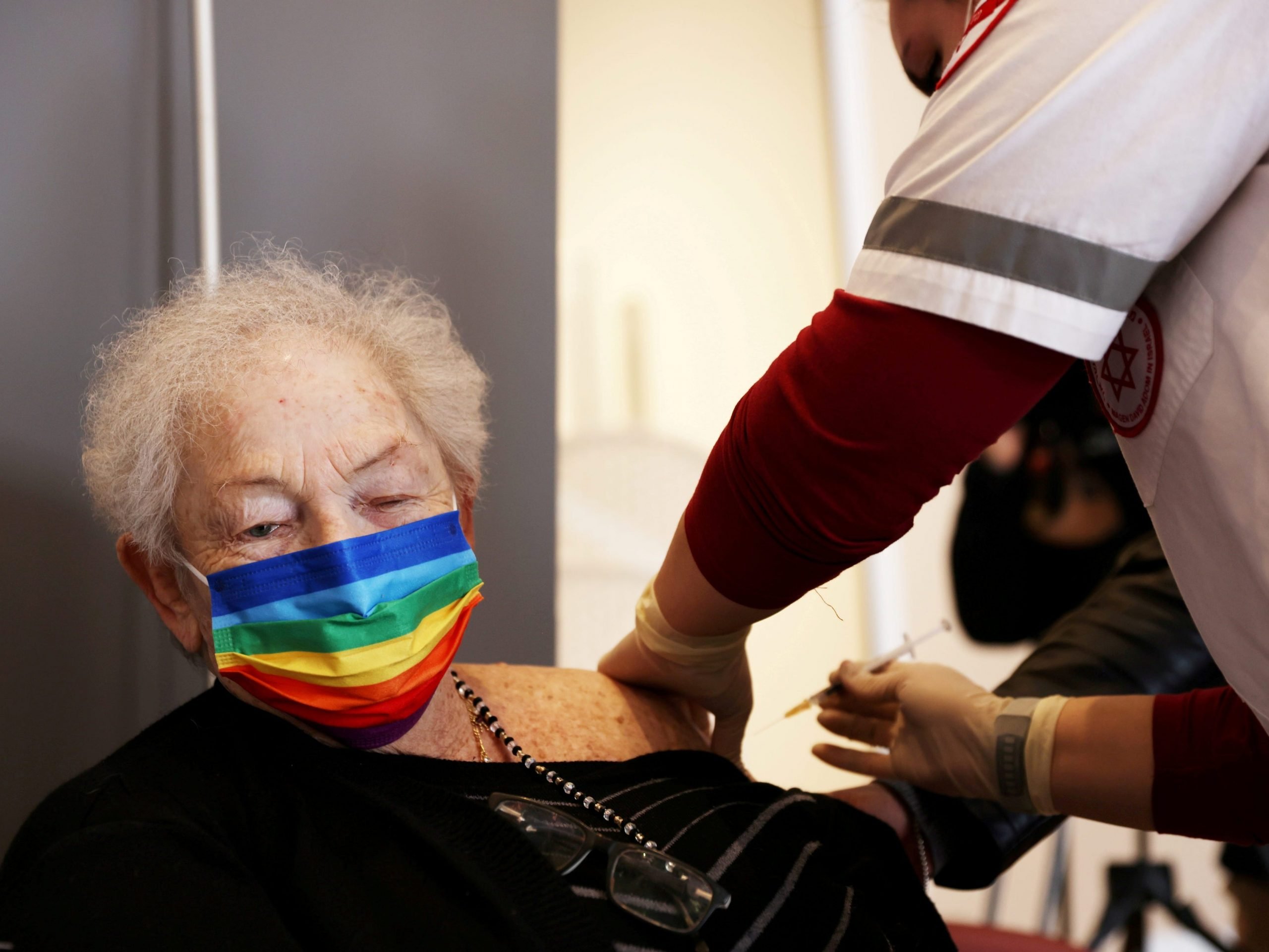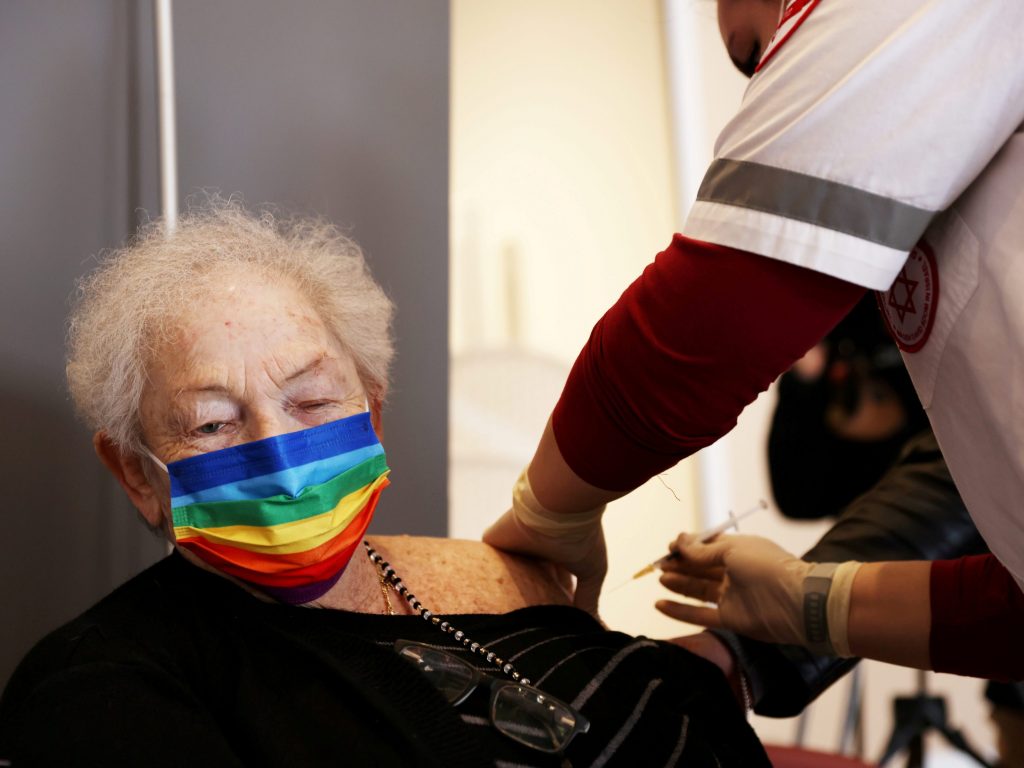
Ronen Zvulun/REUTERS
- Israel will start offering booster shots for adults with compromised immune systems, such as those with organ transplants.
- The country's health authorities are still weighing if the general public need booster shots.
- After a successful vaccine rollout, the country is seeing a fresh spike in COVID-19 cases.
- Visit Insider's homepage for more stories.
On Sunday, Israel announced it will start offering a third dose of the Pfizer vaccine to adults with weakened immune systems, reported Reuters, but it is still considering if the rollout should be made public.
After what was touted a quick and successful vaccination drive in the country, Israel has been seeing a wave of new infections, mainly driven by the Delta variant, over the past month. Israel registered more than 450 daily cases on average in the past week, according to data from Johns Hopkins University – a far cry from the low double-digits cases recorded in May and early June.
Fifty-seven percent of Israel's population is fully vaccinated with Pfizer vaccines, raising doubts over the vaccine's efficacy against the Delta variant. A study conducted by the Israeli Health Ministry between June 6 and early July showed Pfizer's efficacy down to 64% from 94%, reported Bloomberg. But the fall in efficacy may also be due to Israel lifting COVID-19 restrictions in June.
Meanwhile, the US Food and Drug Administration (FDA) and the Centers for Disease Control and Prevention (CDC), have said fully vaccinated Americans do not need a booster shot, for now. Pfizer and partner BioNTech SE – the companies that produce the vaccine – said they will meet with US authorities Monday to discuss the need for booster shots.
"As seen in real world evidence released from the Israel Ministry of Health, vaccine efficacy has declined six months post-vaccination, at the same time that the Delta variant is becoming the dominate variant in the country," the companies said in a written statement, reported CNBC.
In the statement, the companies said they believe "a third dose may be needed within 6 to 12 months after full vaccination."
